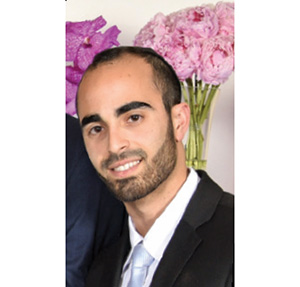
This week’s parsha discusses the law of allocating any of the third-year tithes that might have remained in our possession. The Torah commands that along with the allocation one must also recite viduy, a “confession” that he has properly performed all of the relevant mitzvot associated with the giving of the tithes.
Rav Wolbe uses this content to ask the following question: We know that in the process of teshuva there are a few essential components that should be present in order to do a complete teshuva. 1) Regret over one’s misdeeds. 2) Commitment not to repeat those misdeeds. 3) Viduy, verbal confession. Rav Wolbe asks, what is the purpose of this viduy; what does it accomplish in the teshuva process? Isn’t one’s regret and serious commitment to not repeat the mistakes he or she made enough?
Rav Wolbe explains that in the moment when one is involved in a misdeed, or at least right before it, a person succumbs because he imagines or believes that Hashem does not see him perpetrating the misdeed. What this person is attempting to do is hide from the Creator. How do we rectify such a mindset and behavior? We do this through the viduy in which we declare “for the sin that we have sinned before you”—we are acknowledging that not only were You, Hashem, watching us when we sinned, but at the same time You even continued to bestow upon us the physical capacity that was used to commit the sin! A person who comes to this understanding is essentially removing this “hiding behavior” that causes him to feel separated from Hashem. The reason why this is such an integral part of teshuva is because this phase is one where we are actually “returning” our minds and hearts to the recognition that Hashem was and is on the scene at all times, and that He even was the one who was supplying us with the energy and capabilities that aided the sin to occur [this is not to mean that Hashem necessarily wanted the sin to happen, but rather, as the Tomer Devorah puts it, it is to highlight a remarkable indication of Hashem’s forbearance and patience in that even when we go against Hashem, He nevertheless does not discontinue giving us life, energy and existence in the moment itself].
This idea is important because it paints the picture of the relationship between us and Hashem when “things aren’t going so well”: When we go against Hashem, Hashem doesn’t go against us. Meaning, when we do a misdeed, it is us who becomes separated from Hashem—the sin causes our minds to believe we are far from God. However, that’s only in our minds. But when it comes to Hashem, He never left us in the first place. We may think that our misdeeds separate Hashem from us, but in truth, that is largely a figment of our imagination, and perhaps a feeling Hashem implanted in us in order to motivate us to return to Him. But yet, many times we strongly feel and think that Hashem is far from us after such a thing occurs. Therefore, this teshuva needs to stem from a returnal of our heart and mind, to re-affirm that Hashem was and is right there in every misdeed, and it was our denial of His presence that led to our slip-up. Hence, much of this teshuva we are doing is a teshuva in a lack of emunah, forgetting that Hashem is watching us, that He cares about us, and that He has given us a unique mission that we need to accomplish.
By Binyamin Benji
Binyamin Benji is a graduate of Yeshivas Rabbeinu Yitzchak Elchanan, and Wurzweiler School of Social Work. He currently learns in Lakewood, and is the author of the Sephardic Congregation of Paramus’ weekly Torah Talk. He can be reached at [email protected].








